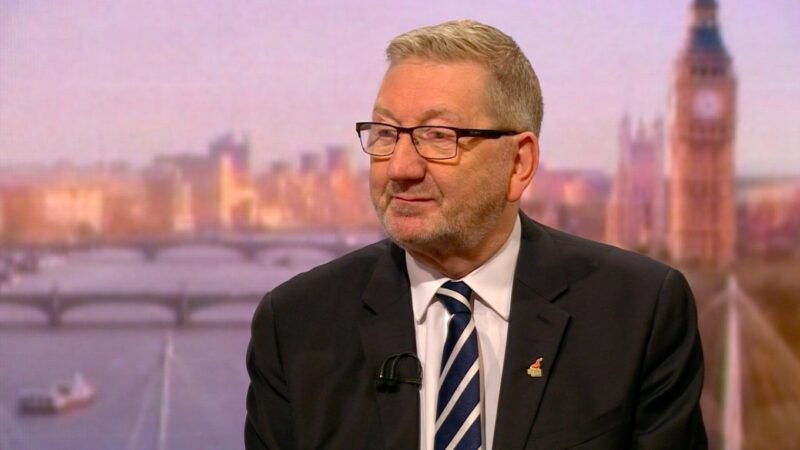
“If you break it, you own it.” So says the sign in every Pottery Barn store in the USA. It is a penalty Labour’s second-referendum lobby would do well to recall. As a number of party members from left to right – including MPs and ex-MPs – have pointed out, Labour’s defeat in the general election was largely conditioned by our abandonment of our 2017 pledge to respect the referendum result mandating departure from the European Union.
The facts support that analysis. The seats we lost were nearly all in Leave-voting areas. 11% of our 2017 votes went to the Tories (with another few percent to the Brexit party). Far more Leave voters than Remain voters amongst our 2017 electorate left us in 2019. That is why we retained Canterbury, one of our landmark gains of 2017, but couldn’t hang on to Crewe. We were at best the party of “kick Brexit down the road” and at worst of “stop Brexit at any price”.
Yes, other factors were in play, including the decline in Jeremy Corbyn’s personal standing since 2017. But that, too, appears to be largely linked with a year of equivocation on Brexit. All of this was not only predictable, it was in fact predicted – by Unite and backbench Labour MPs, amongst others. The careful balance of the 2017 manifesto was discarded in favour of a re-run referendum, a policy that many could only see as disrespecting their vote.
The view took hold that if it was the underlying causes of the discontent in many parts of the country that led people to vote “Leave”, then the vote itself could be ignored. Alas, that left Labour looking very much like part of the establishment, which most working-class voters had decided needed a political kicking.
Labour’s comeback – which clearly will not happen overnight – needs to start from the recognition that a London-centred political leadership and left commentariat got it wrong. They pushed the party down a blind alley, ignoring any number of warning signs. No amount of rewriting history or playing “what if” games can overcome that fact.
The road to a Labour government runs through Rother Valley and similar communities, so we must listen to the message they gave us. It was not ‘fight for Remain at all costs or we’ll vote Liberal Democrat’ as some wish to believe. It was ‘obstruct the implementation of our democratic decision and we will be off to the Tories or to Nigel Farage’.
The refusal to recognise this message, still maintained in some quarters, has an obvious political purpose. It is to pave the way for a return to the policies of the past, which contributed so much to leaving behind the former industrial communities in the coalfields, the textile towns, the Black Country and the Potteries.
It never ceases to amaze me, the brass neck of these individuals who were the very architects of the Brexit policy that destroyed Labour – from Tony Blair and Jack Straw to the Wes Streetings and Neil Coyles of the PLP who now seek to lay the blame on Corbyn’s radical policies. Not to forget the left journalists and pro-Remain liberal newspapers that now, conveniently, sidestep their role or worse still, try to justify it.
That is most obvious in the grandees’ efforts to spin the result. The sad fact is that in most of the seats we lost, the electoral rot began when the Labour Party in government focussed on finance and London and the south-east, taking its northern and midland voters for granted.
The New Labour government may not have created the problem – deindustrialisation did that. But the Blair years offered no solution, and instead tended to celebrate the globalisation that wrought so much damage. One thing we can be sure of – nobody in Bolsover or Blyth Valley is voting for more deregulation of industry or private finance in public services.
Unite is proud to have supported the move, headed for four years by Jeremy Corbyn, to develop an alternative agenda to the failures of the previous Labour government who never challenged power and privilege. 2017 proved the potential popularity of a more progressive programme and that is what we need to build on. I am glad that all candidates offering themselves to be Labour leader today seem to recognise that fact to some extent or other.
Unlike some Labour grandees, our focus must be on Darlington, not Davos. Rebuilding a common sense of purpose and identity among working-class people in big cities and small towns alike around a positive Labour vision for the future – a vision that will burn the brighter as Johnson’s Tories betray the promises of the election campaign – is the only route back.
Unite will play its part in that – indeed, we started some years ago when we launched our community membership section precisely to reach out to those sections of the working-class unavoidably detached, sometimes for many years, from the world of work and its institutions.
But more must be done. Labour itself must renew its roots in many constituencies. Our mass membership is a lot more mass in London and the south-east than it is further north. Sometimes the record of Labour councils is deeply unappealing – yes, they have a hard job, but taking it out on their own workforce, and ignoring their communities, doesn’t help.
There is no magic wand. We do know, however, that part of the solution must be respect for the democratic voice of those we seek to represent. Let us never again get the wrong side of that principle.




More from LabourList
‘I was wrong on the doorstep in Gorton and Denton. I, and all of us, need to listen properly’
‘Why solidarity with Ukraine still matters’
‘Ukraine is Europe’s frontier – and Labour must stay resolute in its defence’